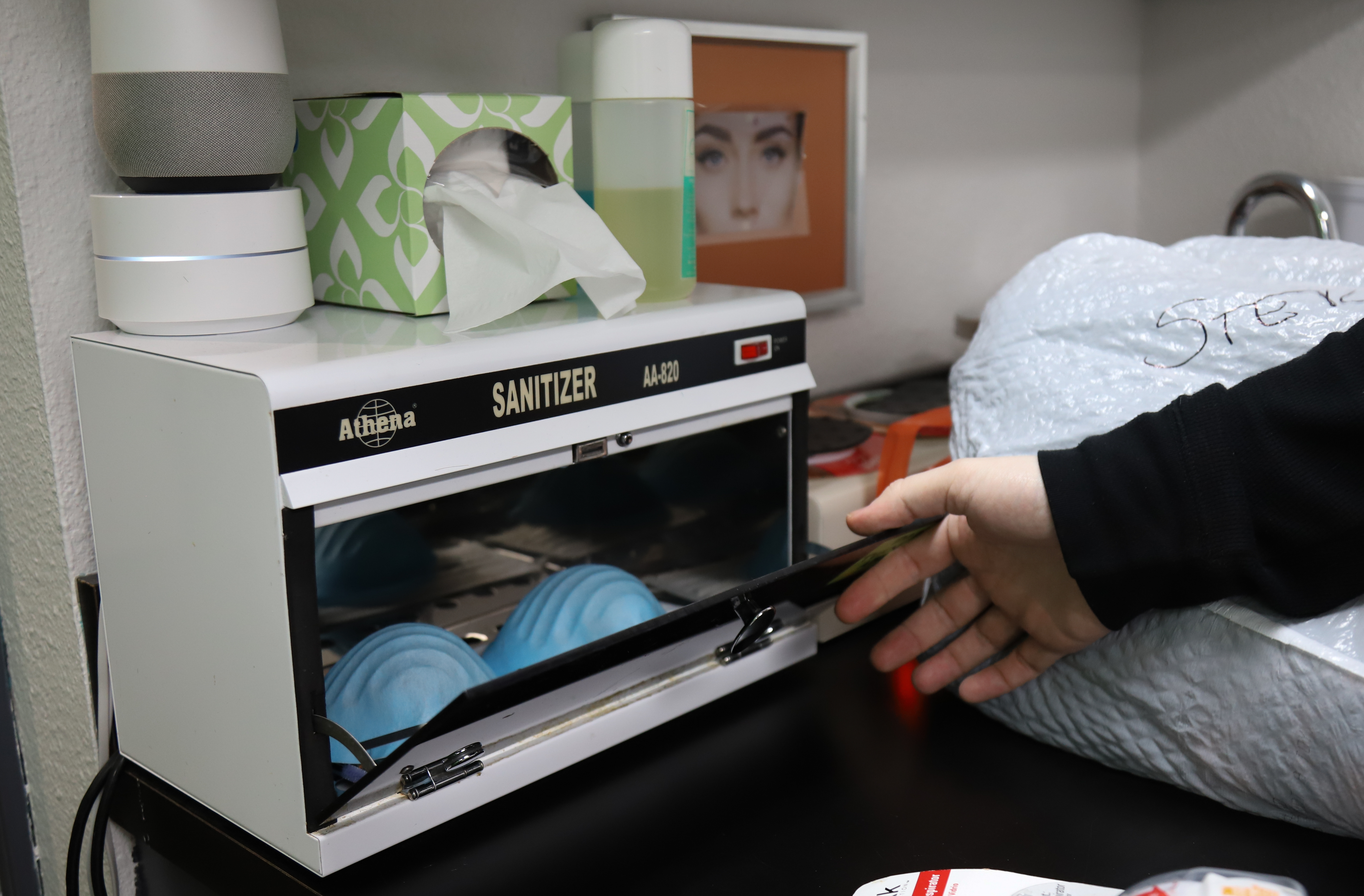
Anchorage’s mask mandate went into effect Monday in the midst of some strong opposition by individuals who claim such an order infringes on civil liberties or is medically harmful. One area of confusion has been how customers need to prove a disability that might prevent them from wearing a mask to a store owner.
Alaska Public Media’s Lex Treinen spoke to some experts about legal and medical concerns about the mask mandate.
Q: Some people are concerned that the mask mandate violates Americans with Disabilities Act protections. Are those concerns valid?
The mayor’s Emergency Order 13 explicitly states that the order does not require a person with a disability to produce medical documentation verifying the stated condition or disability. So if a business owner were to stop a customer from going into a store because a disability prevented that person from wearing a mask, that’s a legal issue between the customer and the store, not between the customer and the city.
Dave Fleurant, an attorney and the executive director of the Disability Law Center of Alaska, said that a legal challenge was “possible” against an individual store owner who denied a person with a disability entry, he was hopeful it wouldn’t come to that. He said that ideally, any interaction between a store owner and a customer with a disability would be an attempt to find a reasonable accommodation.
“Then it becomes a dialogue – well can you wear a face shield instead of a mask, or can I serve you curbside, can I get you something?” he said.
To do that, a customer would have to reveal the disability that they have, at least to an extent that would allow a reasonable accommodation to be made.
Q: Photos are circulating online of cards that claim to exempt an individual from mask requirements. What is the deal with these cards?
The cards, which claim to be printed by the Freedom to Breathe Agency are not at all endorsed by the U.S. Department of Justice. An official from the Justice Department called the cards “chicanery.” But Dave Fleurant said that the text of the cards, which reads that “Under the Americans with Disability Act, I am not required to disclose my condition to you,” is technically correct. But failing to disclose is not a free pass into the business.
In order for a store owner to make a reasonable accommodation, an individual will have to reveal a disability. And store owners also have a responsibility to public health.
“If you have a very crowded environment and someone wants to walk through without a mask, does that put others at substantial risk?” he said.
Fleurant said he’d like to see more guidance on this complicated legal issue from the U.S. Department of Justice which has so far been silent, other than to push back against the mask-exemption cards.
But Fleurant pointed out that faking a disability in order to avoid wearing a mask is offensive and harmful to people with real disabilities.
Q: The mayor’s order explicitly makes exceptions for people with medical issues. What are some of those medical issues that people might have to prevent them from wearing a mask?
The most obvious ones are breathing issues, asthma, COPD (chronic obstructive pulmonary disease) and some facial deformities. But Dr. David Scordino, the medical director of the emergency room at Alaska Regional Hospital in Anchorage, said not everybody with asthma or COPD needs to avoid wearing a mask.
“Most people with relatively mild asthma and COPD can absolutely wear a mask without any significant difficulty. And so even saying those conditions does need to be tempered with based on their severity, whether or not that truly would, should impede them medically from wearing one,” he said.
While doctors say there’s no real way of knowing how many people might have legitimate medical issues with wearing a mask, Scordino said he thinks the number is relatively small, maybe a few percentage points of the population. He said that if anyone thinks they might have a medical reason for not wearing a mask, they should talk to a doctor instead of trying to make that decision for themselves.
“These people are also the highest risk if they’re some of the highest risk individuals, frequently given their underlying medical conditions to have severe COVID-19. And so this really does need to be a risk-benefit discussion,” he said.
There is one more issue that Dr. Michael Bernstein, the medical director of Providence Alaska pointed out. That is people with psychologic disease or anxiety about wearing a mask. While that is a real issue, Bernstein said that an alternative accommodation such as wearing a face shield might be the best option.
Send us your questions — big and small, serious and trivial — about the pandemic in Alaska and we’ll try to get the answer.
